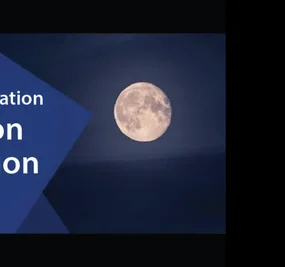Around ten years back in Jabalpur, I got the opportunity to interact for a few months with four autistic individuals. The mother of a 25-year-old shared her son’s childhood-autism journey and response to various alternative autism treatments. Before we learn about how meditation can help autistic individuals, let’s walk through the basic understanding of autism.
What is Autism?
Autism is a chronic neurodevelopmental disorder. Autistic individuals are often described as “on the spectrum” as different autistic patients behave differently. They usually have difficulty communicating with others, understanding social signals and reciprocating with the external world.
What causes Autism?
World Health Organisation (WHO): scientific evidence suggests there are probably many factors that make a child more likely to have autism, including environmental and genetic factors.
What is the most effective treatment for Autism?
There is no effective medication for autism except Risperidone, the only FDA-approved drug. But it has adverse side effects and can be an economic burden on the caregivers.
WHO suggests that evidence-based psychosocial interventions improve communication and social skills. It positively impacts the well-being and quality of life of autistic individuals and their caregivers.
Meditation as against Medication is an alternate drug-free way of treating Autism. The treatment of this disorder by meditation is showing signs of success.
Why should you & everyone you know should Meditate?
Studies reveal that meditation may provide benefits that complement a lifestyle with balanced physical exercise, good nutrition and a nourishing environment. Meditation is a tool to access higher states of consciousness, where thoughts and feelings subside. There is better connectedness and harmony.
Here are the ten ways meditation can help autistic patients.
- Meditation is a conscious process of self-regulation that tempers the flow of thoughts, emotions and automatic behaviors in the body and mind.
- Meditation effectively strengthens self-healing, cognitive and behavioral development among autistic children.
- Mantra meditation may be beneficial for young children. Research results indicate that mantra meditation is a feasible intervention for children between 3 and 14 years of age, to improve health outcomes in ASD.
- Meditation moves from a state of duality (duality causes conflicts) to singularity or harmony. Thereby providing relaxation in the present moment and harnessing our energy for optimal health.
- Heightened brain synchronicity is the most frequently observed effect in these practices.
- Positive subjective accounts of meditative experiences with children, adolescents and adults indicate better coping skills, less pain, improved mood and stronger immunity.
- Furthermore, meditation improves breathing patterns, and studies showing changes in hormone levels confirm the ability of meditation to change physiological parameters and rhythms.
- The restorative mechanisms of the body are strengthened and down-regulate the uncontrolled function for survival.
- Life-promoting hormones (like the human growth factor) are secreted. More glucose is directed to the brain to fuel more efficient neuronal pathways. It results in a feeling of well-being, while old habits and the neurons sustaining them “die out”.
- Prenatal or neonatal exposure to excess testosterone may explain that autism is more frequent in boys than in girls. Girls are less vulnerable due to the protective effect of oxytocin. Therefore, meditation for mothers during pregnancy and postpartum periods is essential. It is likely that meditation in young children, notably boys, may reduce symptoms of autism by increasing the release of oxytocin in their brains.





















